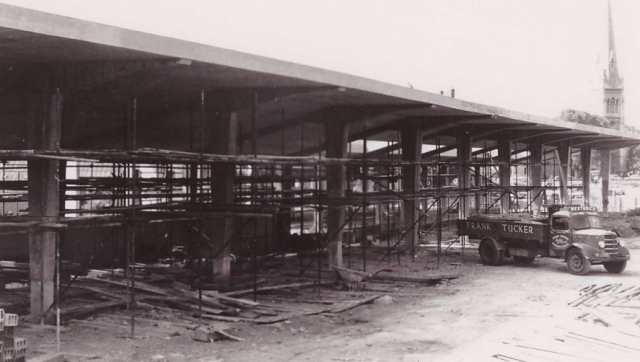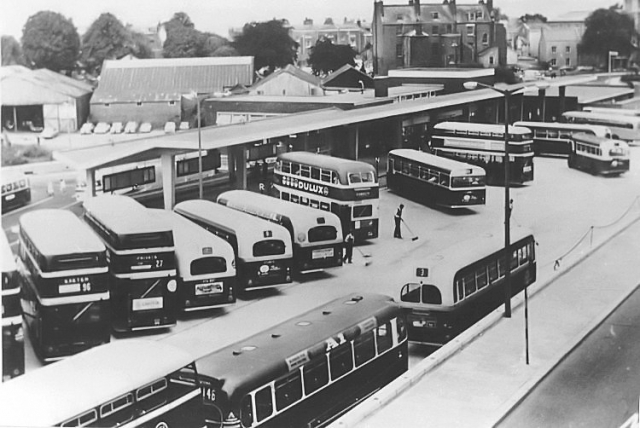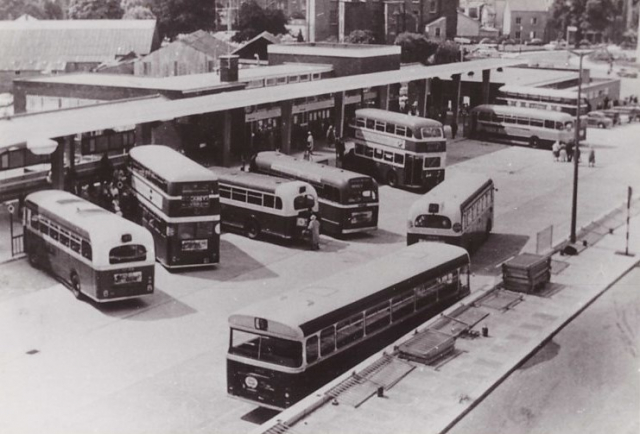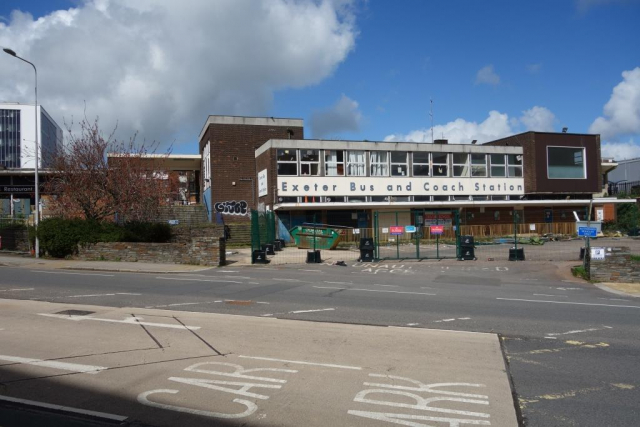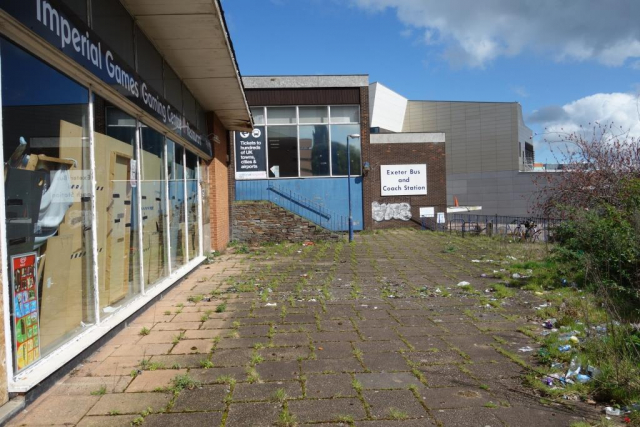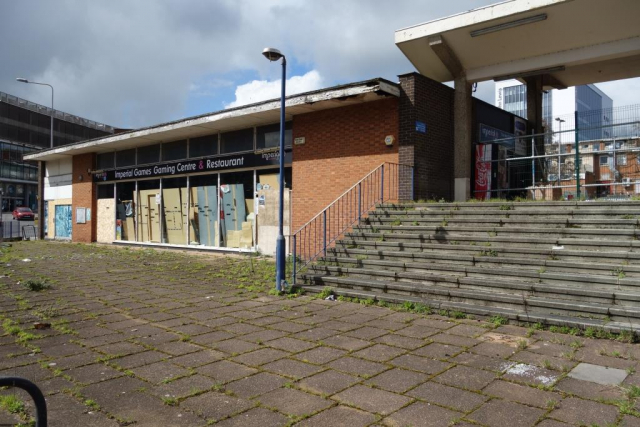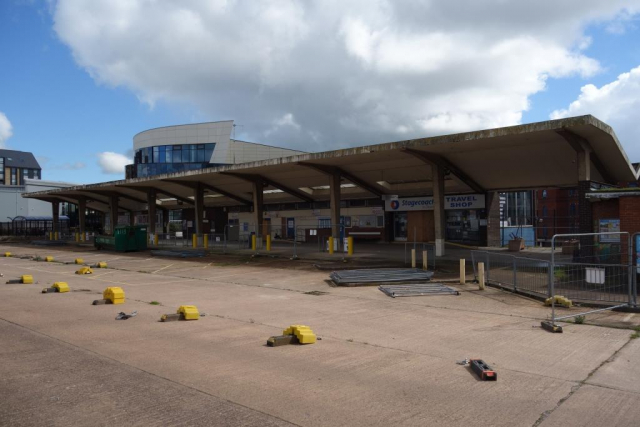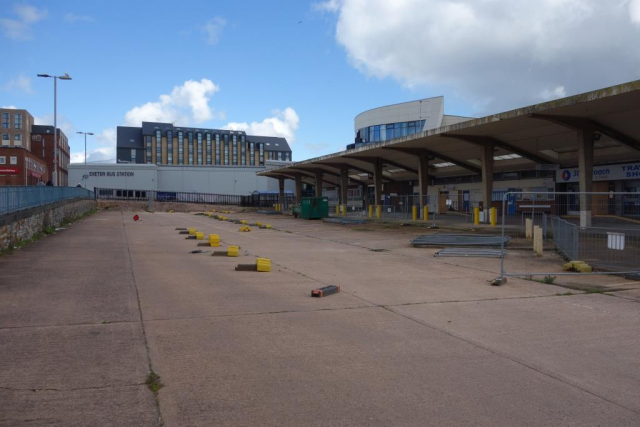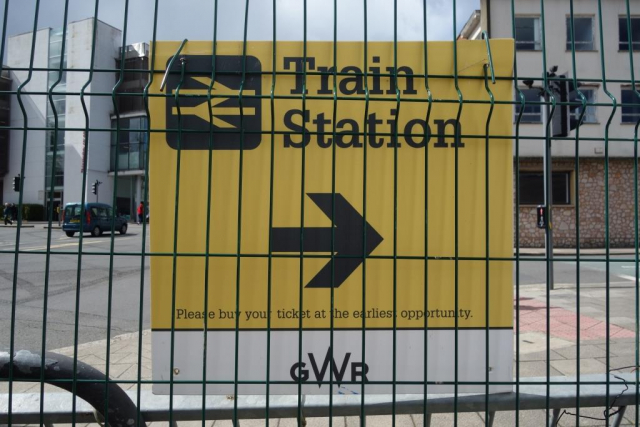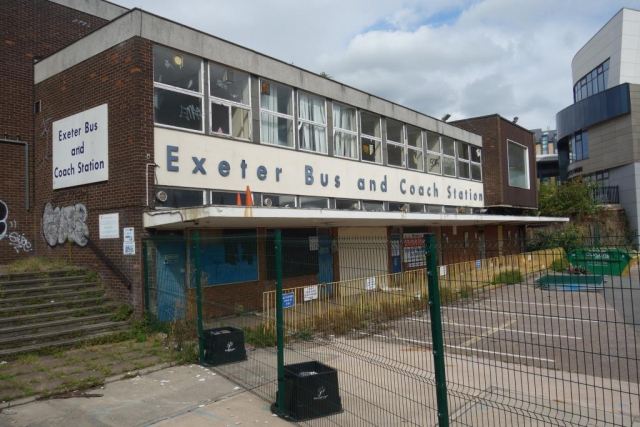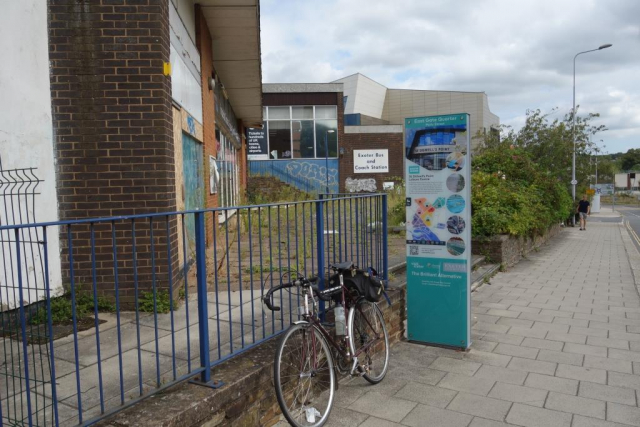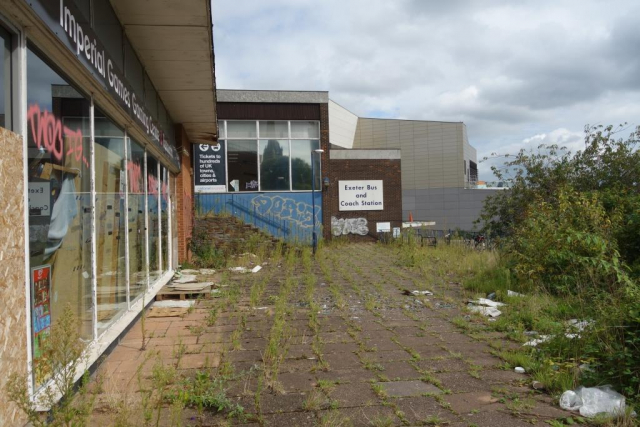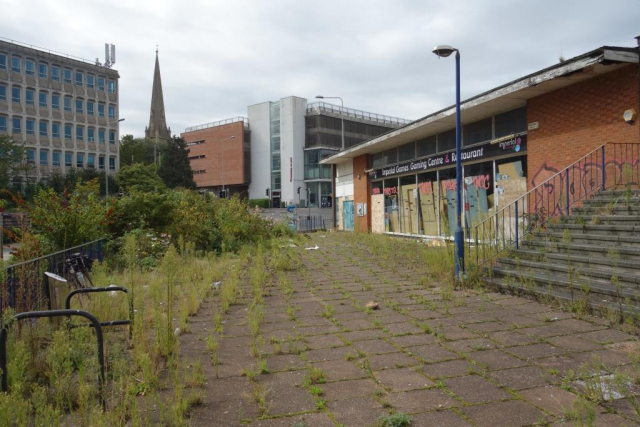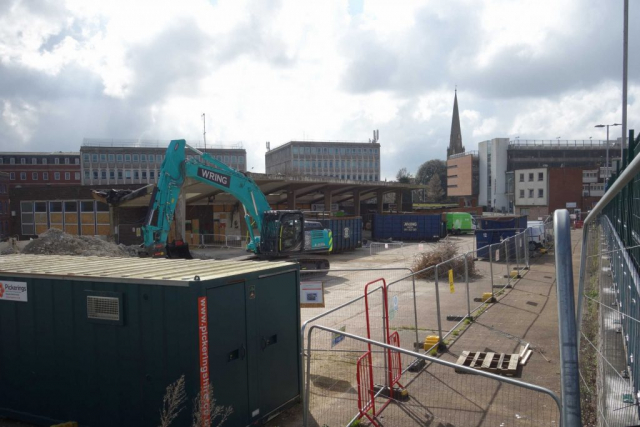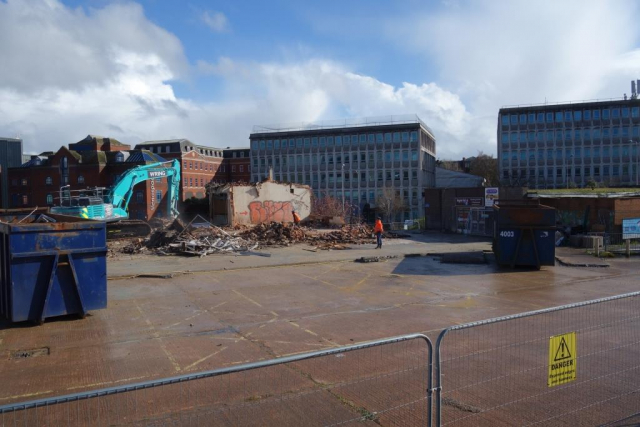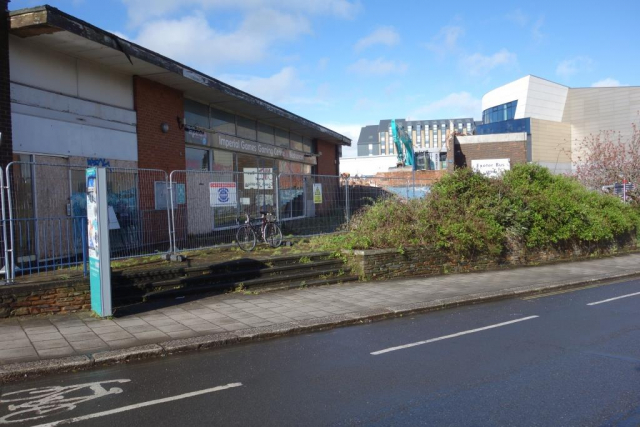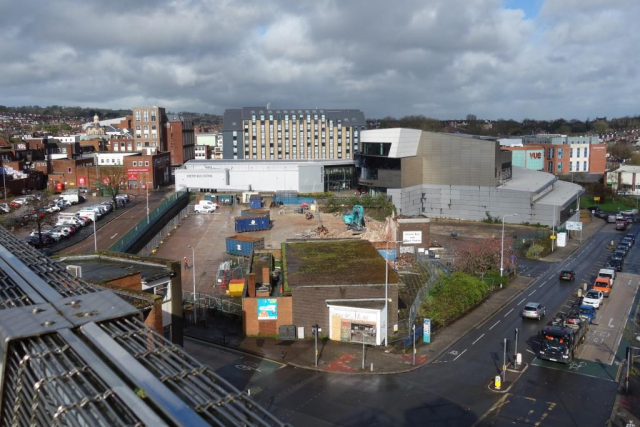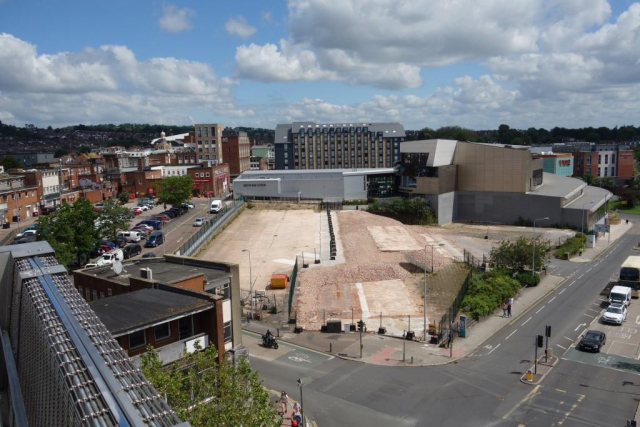Although regularly “scouted” for many years, the bus station was overlooked as a subject for inclusion here, but when it came up in correspondence the scout was given cause to reminisce, ponder and be critical.
His first sight of Exeter’s new bus station in operation was when he wandered in with some friends on the 2nd August, not long after it had opened. He thought he had seen a caff on the plans but there was none and not much at all, he found.
As he remembered the Paul Street station of his childhood, the scout had always thought of Paris Street, opened in 1964, as being new. Most weeks, for twenty of more years, he had had lunch in what became Exeter’s last greasy spoon, where there was still fag ash on the carpet ten years after the smoking ban. Where can ambience like that be found now? It was his weekly dose of social reality. The coffee and grub were good. And cheap: often, despite his telling the ladies otherwise, his monogrammed jacket would get him drivers’ concessionary rate; there had been a staff canteen.
It wasn’t just the grub: the position was good, it being probably the sunniest caff in Exeter, and he could see his bike chained to the railings. People-watching, listening to drivers talking shop and the conversations of travellers and the ladies behind the counter – in many ways it was like a down-at-heel railway buffet.
There was a lot of regulars, including many unemployed and burdens on the state, whose talk of what they had been doing in the Civic Centre, opposite, and Clarendon House (benefits), just down the road, was often eye-opening. Among the individuals, a wizened old fellow called Alex was a hoot, literally. He had a four-wheel shopping trolley with a bulbous horn, which he would use to announce his arrival. He would join a group or sit alone, depending on who was in. He used to touch the Eastern European waitresses and ask them to marry him. They were good-humoured about it, probably because they were used to being groped at home.
Nothing green ever came out of the kitchen. Only fry-ups, jacket potatoes and simple artery-clogging fare were served. It always amused the scout when someone ordered beans with not even a slice of bread or piece of toast, which being the cheap catering variety with thin tomato sauce would just settle on the plate. He used to wonder if a posh place would attempt to pile them up and garnish them with something.
In latter years, after the place was condemned, the scout used to look around and think what a difference a lick of paint, replanting the borders and pressure-washing the pavements would make. There was nothing wrong with it structurally and it was quite well designed. If glazed screens and new signage had been added, the place could have been brought up to date for a very modest outlay. In fact, behind the scenes, a three-year battle was waged to retain the old station.
But it is clear – and will become clearer – that it was an embarrassment for a city that wants showpiece modern architecture and Plymouth-beating facilities on a prime site. So the new bus station was made smaller, further away from the centre and on a sloping site. Bus users are not an important species, when all is said and done, even though the nation’s buses do far more than its trains (https://www.cpt-uk.org/).
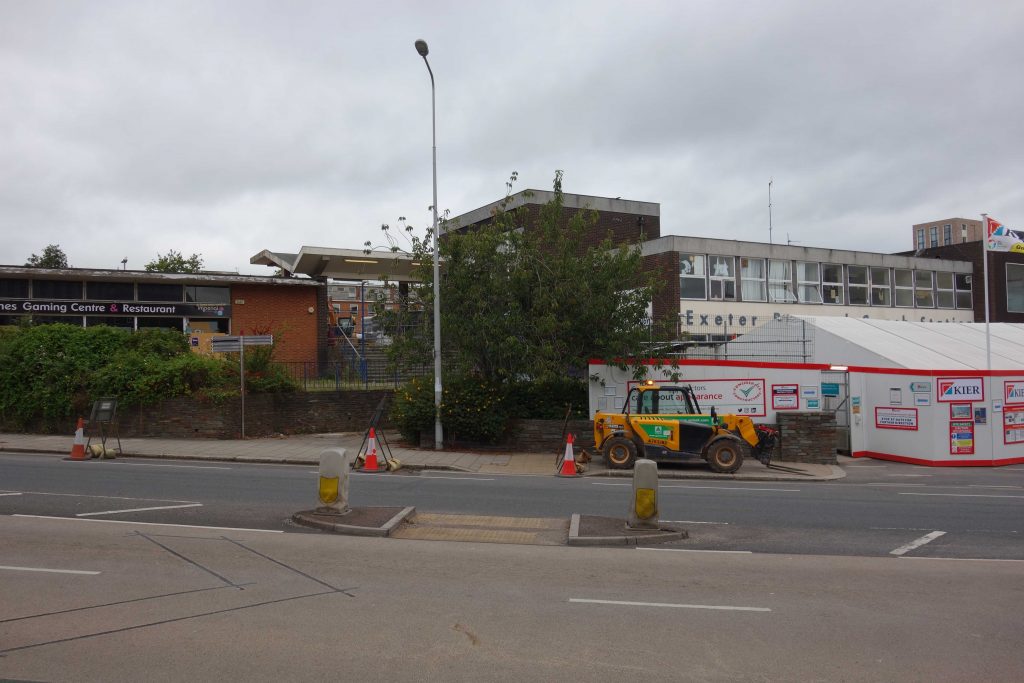
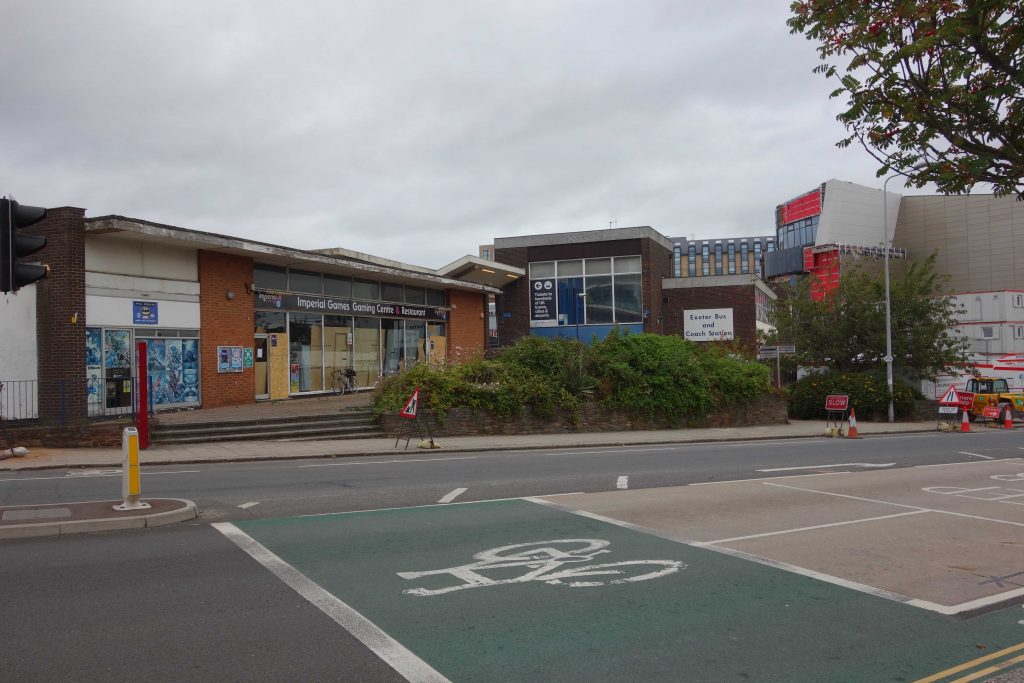
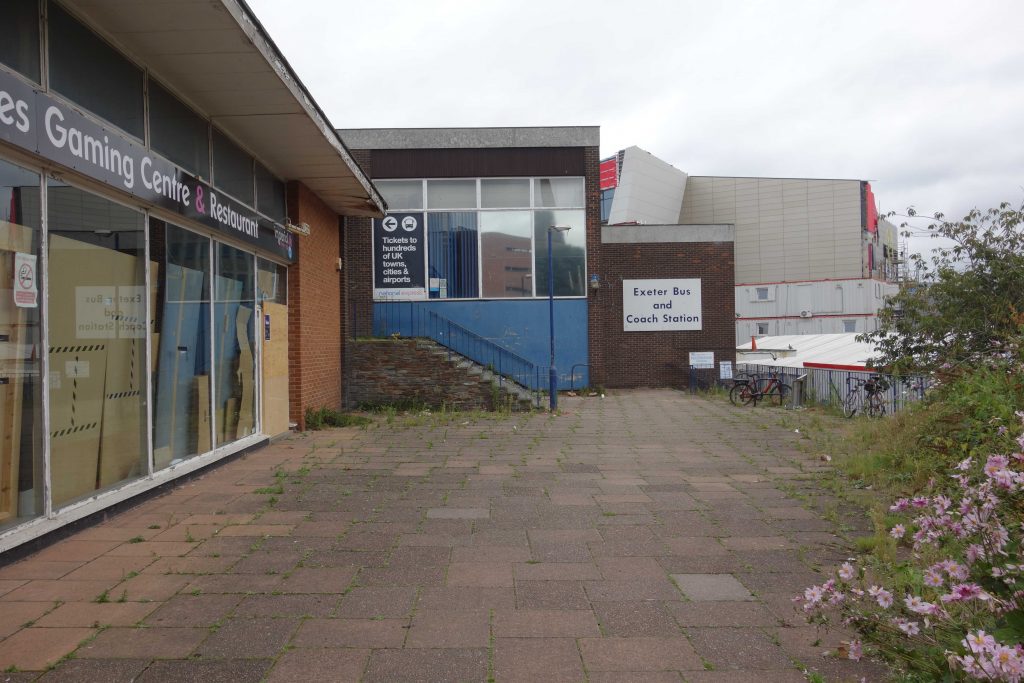
This area was never pretty and in the station’s later years everything became run down. But on a sunny day, with people at the tables outside the caff, passengers sitting on the steps, drivers congregating at the smoking area by the bike rails and others walking through, it was not an unpleasant place at all.
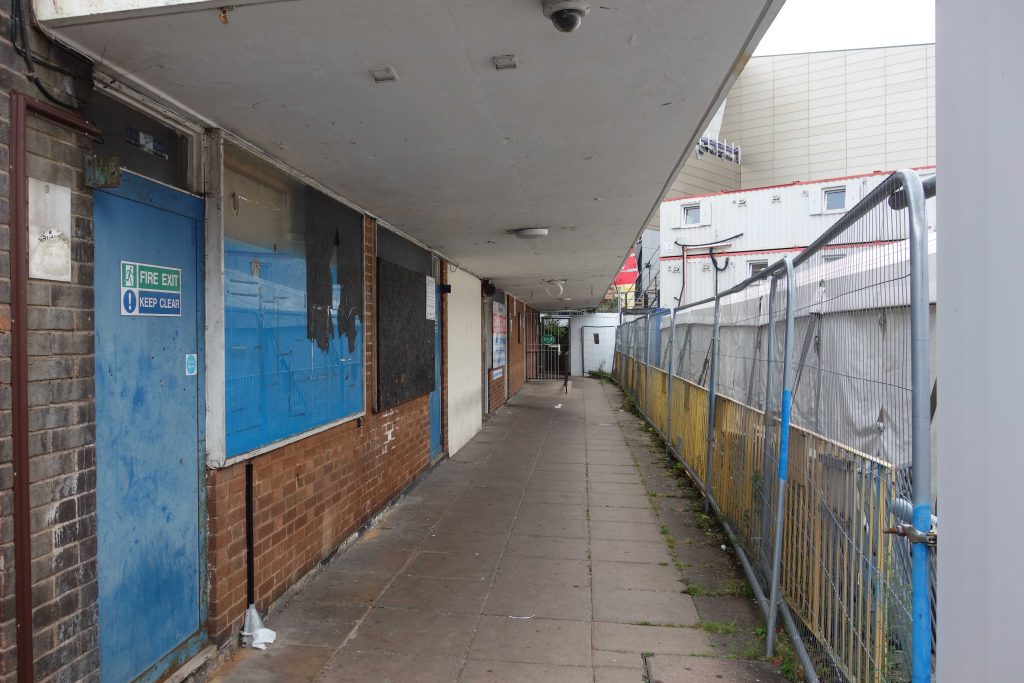
At the end of this pavement, another stairway led to the bus stands. Behind the second blue door was a staff mess room. The door was often ajar and the scout used to espy a framed photograph on the wall of an Exeter tram.
To the right of the railing was once the great expanse of tarmac where touring and long distance coaches followed lanes. The scout remembers a line of Royal Blue coaches parked along the perimeter and queuing with his father for a Greenslades “Dartmoor Mystery Tour” on a Sunday, one of many that used to run.
The local touring business went long ago and for many years the coach station lay deserted, in full view of the eagle-eyed planners in their Civic Centre eyrie.
Lines of people waiting out on the tarmac with no protection would surely be seen as hazardous today. Latterly, the only coach boarding that took place was within an elaborate enclosure with heavy gates and railings built just to the right of where the scout is standing.
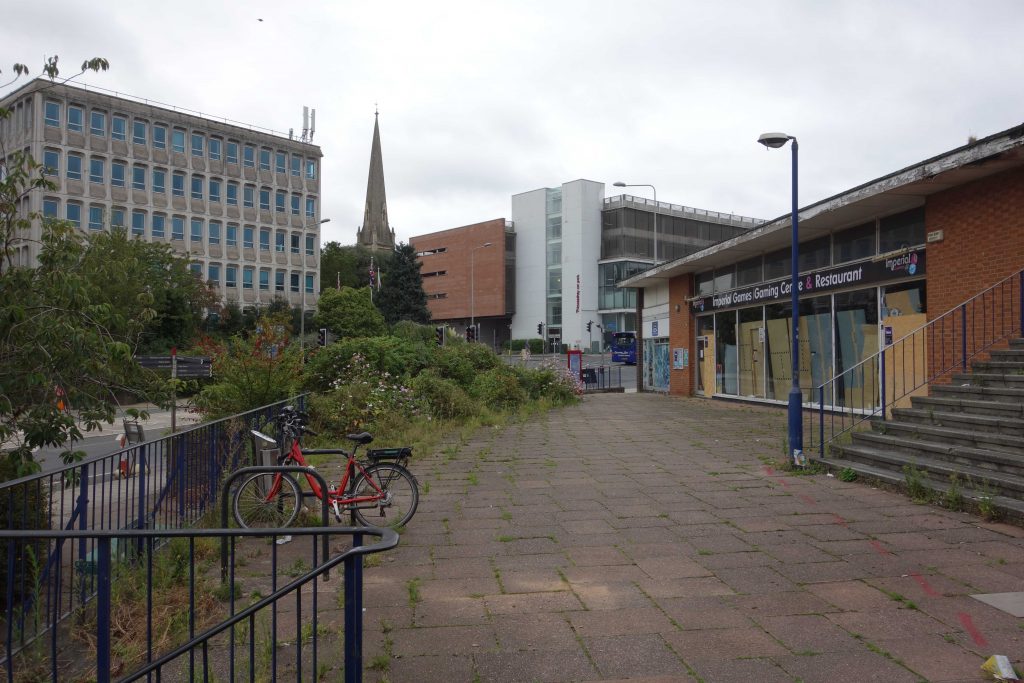
The ghastly steel and concrete Civic Centre will be another short-lived building; it is planned to build a new one on the old bus station site.
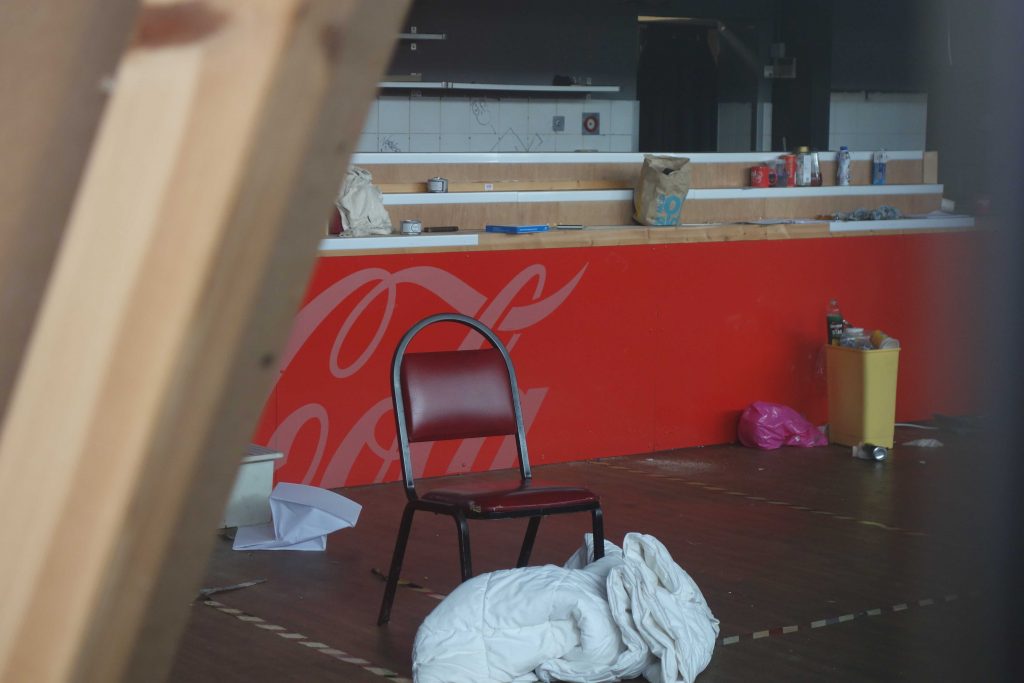
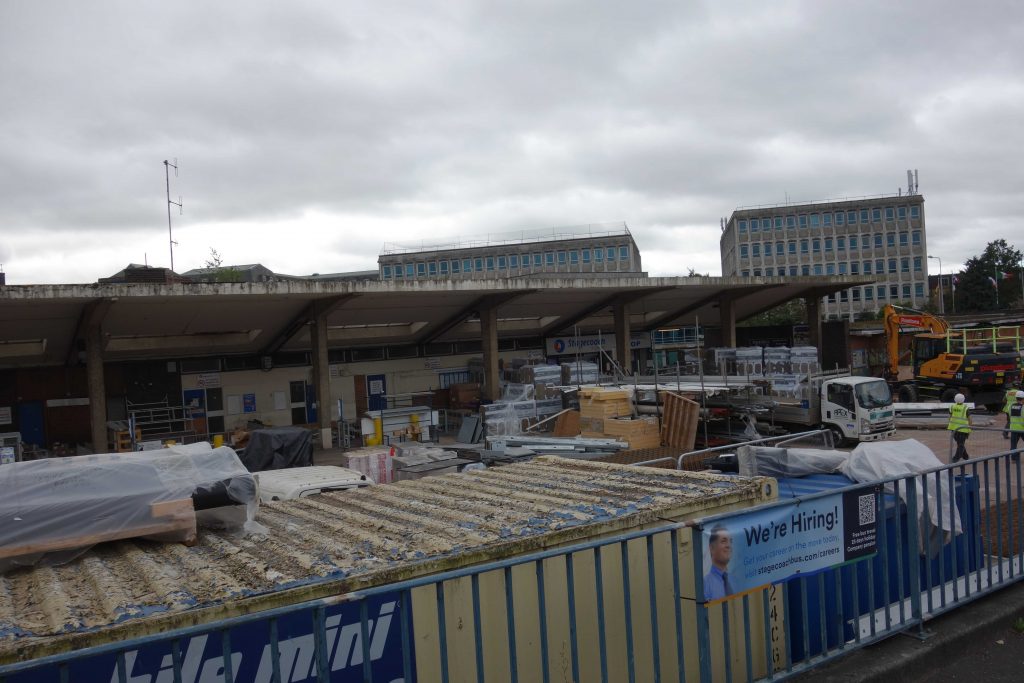
The inspector’s office, staff quarters, enquiry office and cafeteria are all in this view.
The Moretonhampstead and Teign Valley services, 359 & 360, used stands two and three at the far end.
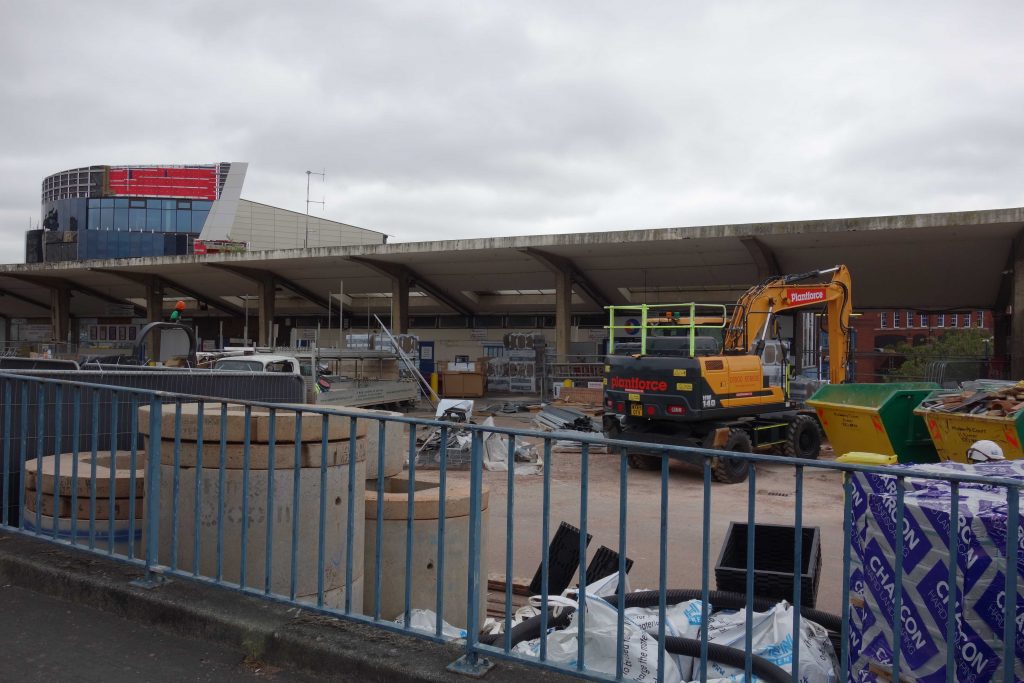
Boards listing the services at each stand used to hang from the canopy; these must have been taken down when the number of stands was reduced.

The £8-million replacement, originally planned to be ready by the winter of 2019, opened on 28th July, 2021. It has been built in the north-east corner of the old site. Services continued to use the old station until the end, while others had been cast out to dispersed street stops, which they will continue to use.
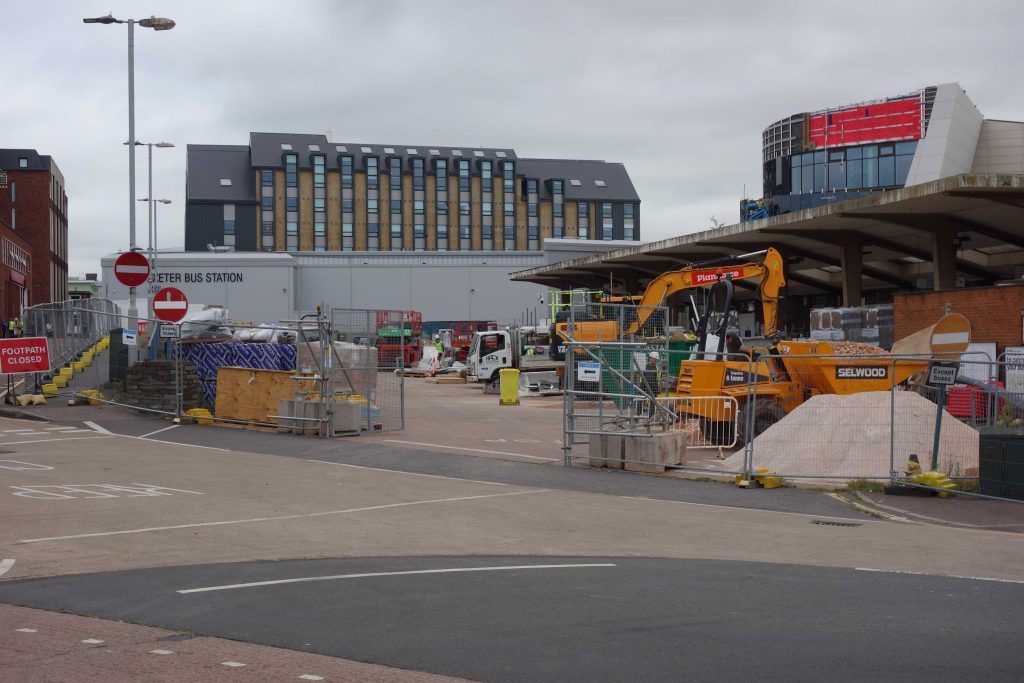
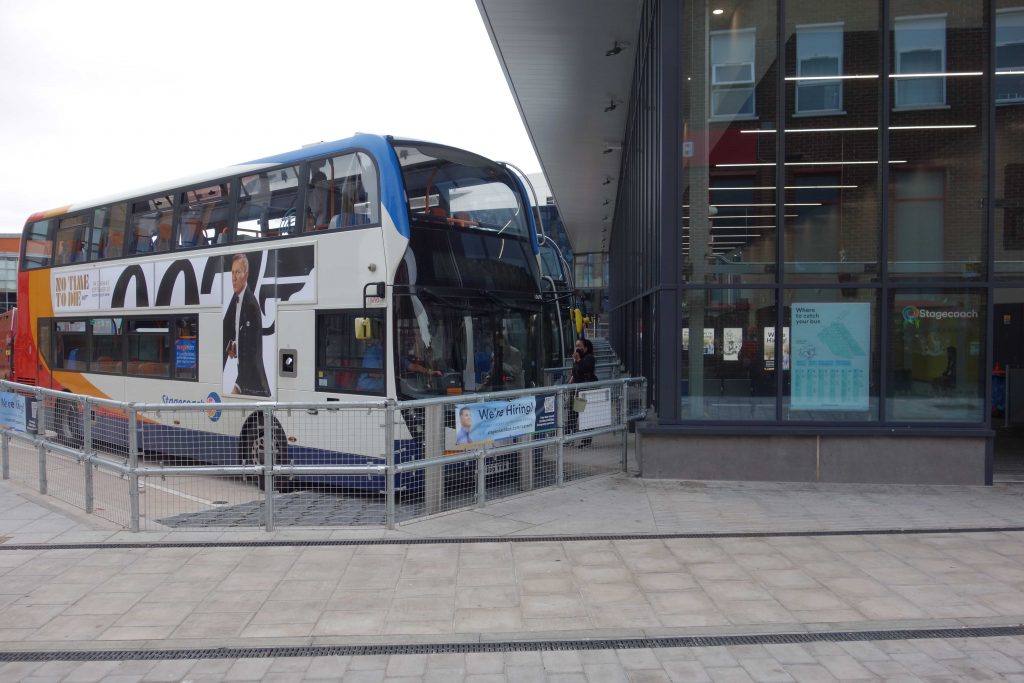
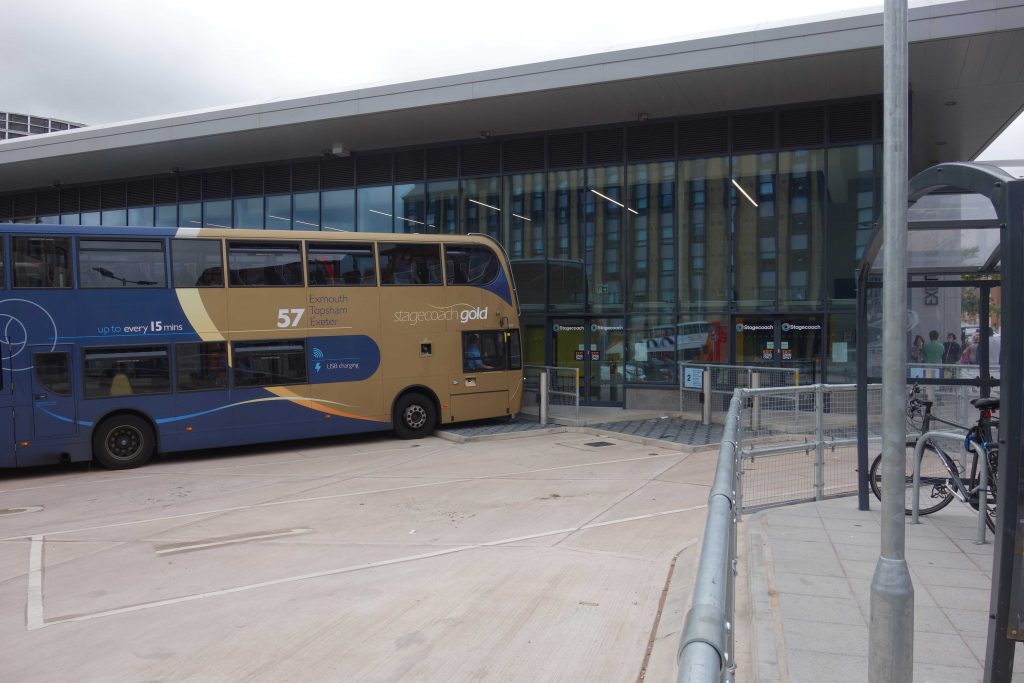
Devon County Council, which disapproved of the design of the new station, considering it to be a city council “vanity” project, had decided that its procured services would not use it if the city determined upon “dynamic” stands, ones that are not allocated to specific services but instead used if available. The matter was settled by the discovery that the station could not accept the type of bus often used by operators of the county’s supported services.
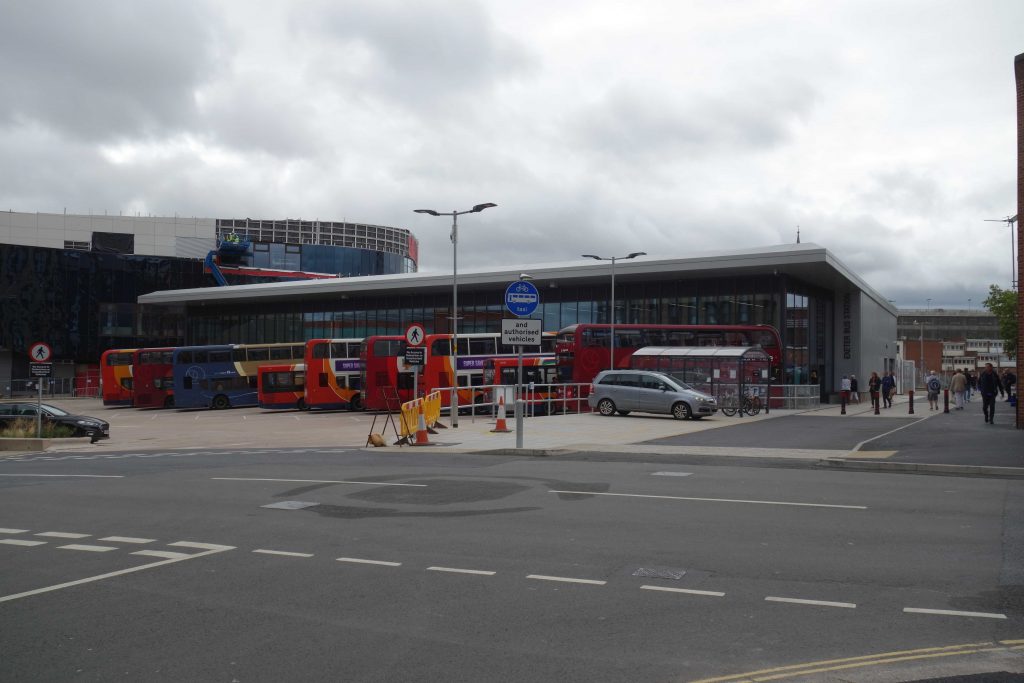
Had the old station become too large or are the twelve stands of the new station insufficient, with so many country and long distance services having to use dispersed stops?
The Moretonhampstead and Teign Valley buses terminate at a stop in Sidwell Street.
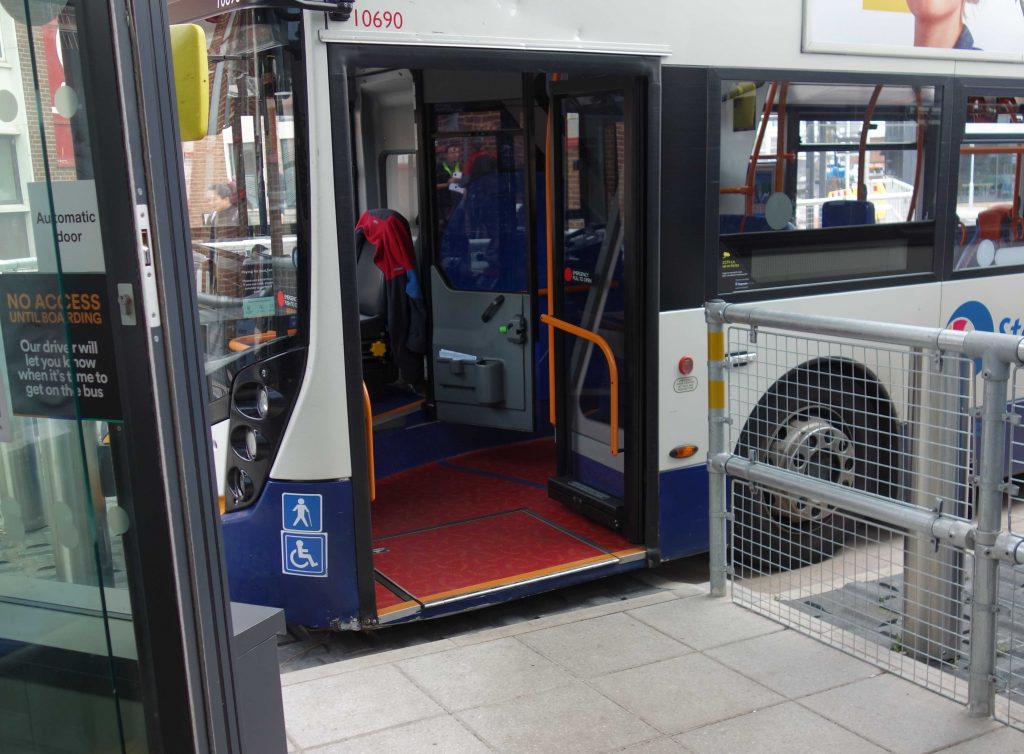
Our driver will let you know when it’s time to get on the bus.”
The driver who released these sliding doors obligingly stood aside to allow this shot to be taken.
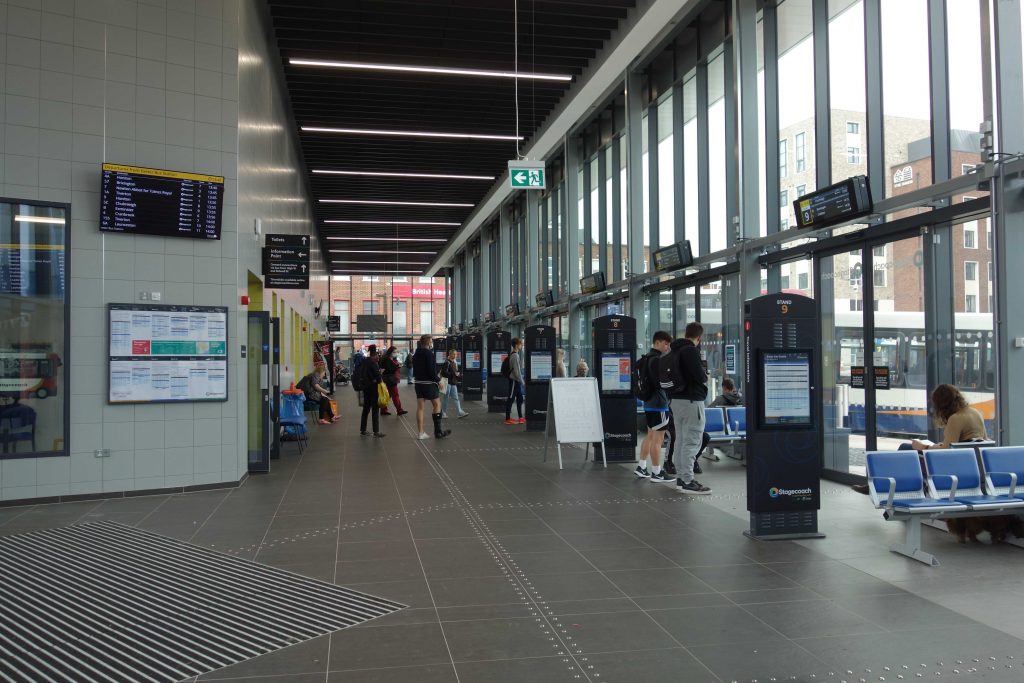
There is an abundance of automatic information screens. It will certainly be more comfortable here than waiting in the open at the old station, but there was a waiting room and caff there.
The Bamfylde Street entrance is at the far end, near the 20p–a-go toilets. Another entrance at the immediate left will be opened when the swimming baths are completed.
The first room at left was meant to be an enquiry office – a counter appears on the plans – but Stagecoach had no intention of manning it. Instead there are just racks for timetables and leaflets.
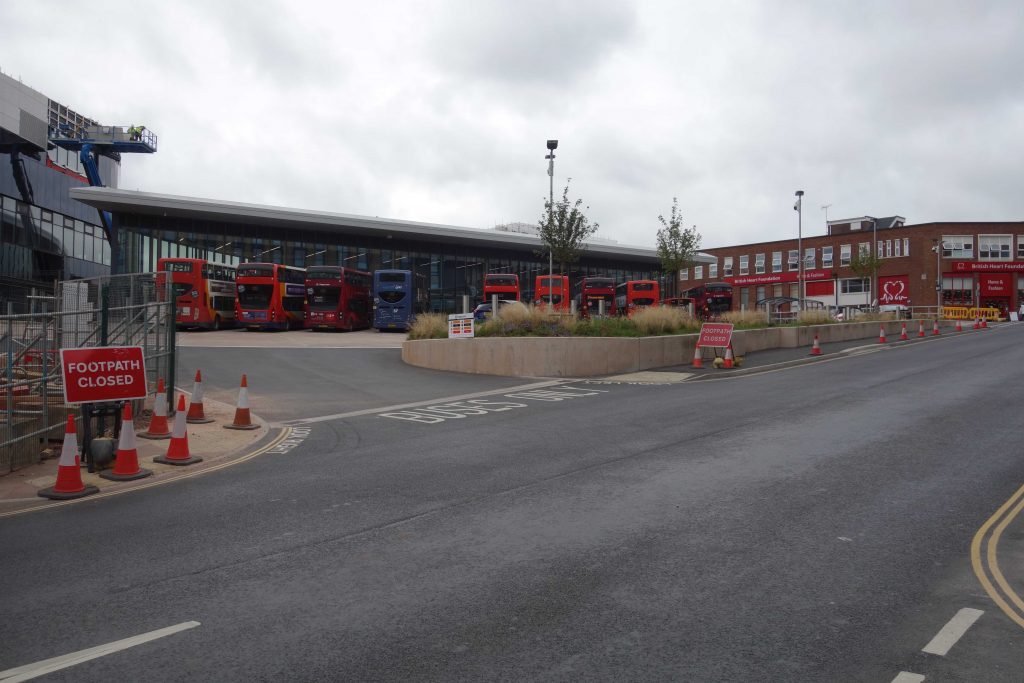
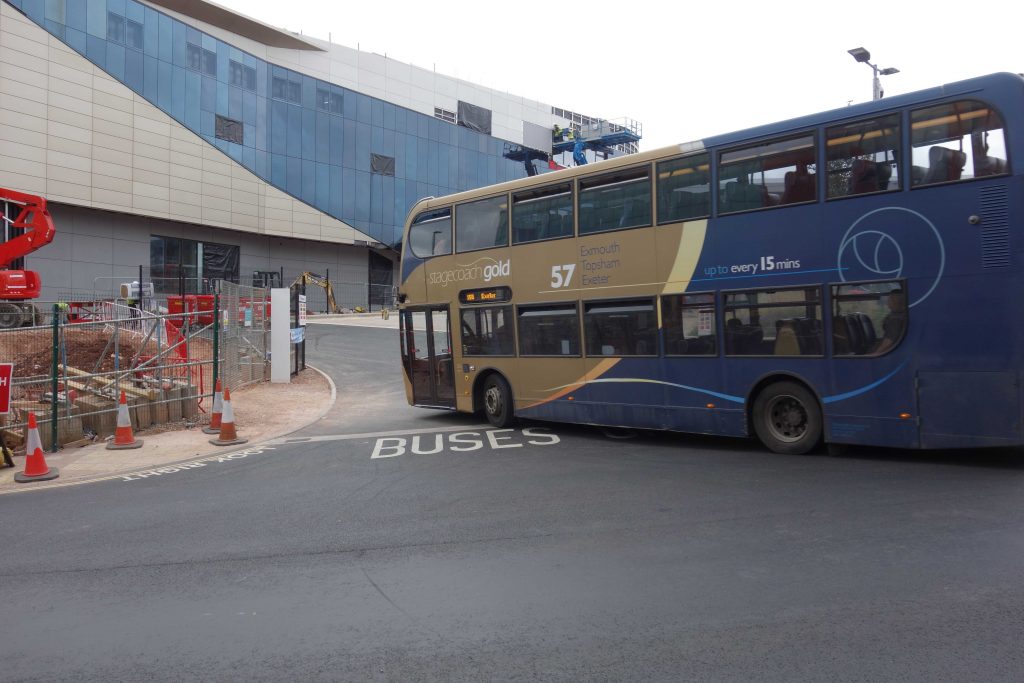
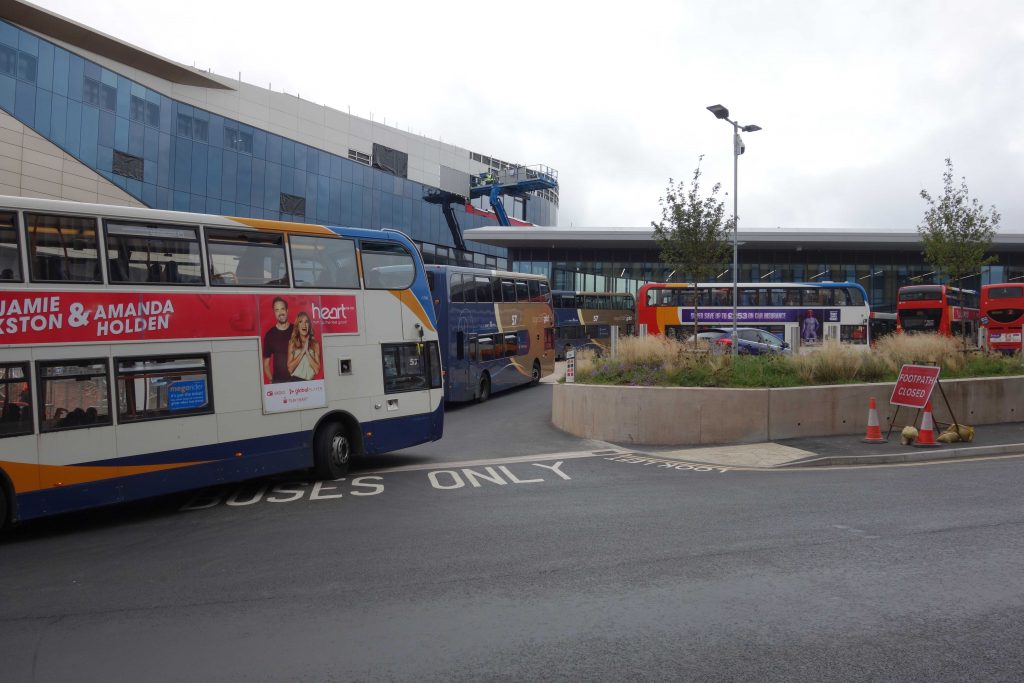
Behind the camera is Belgrave Road, where there was a bus garage until about five years ago. It was relocated to Matford, three and a half miles distant, entailing an enormous amount of light running.
Only a few hundred yards away is the site of Exeter Corporation’s tramway depot, later Devon General’s bus depot, where the scout remembers seeing the lines and inspection pits within the shed.
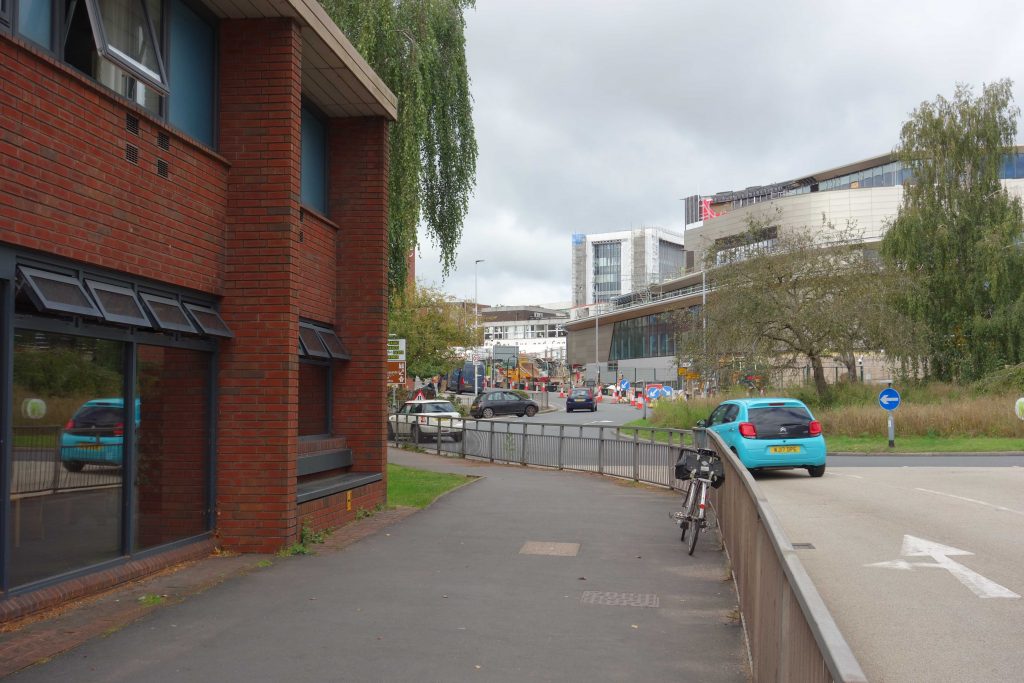
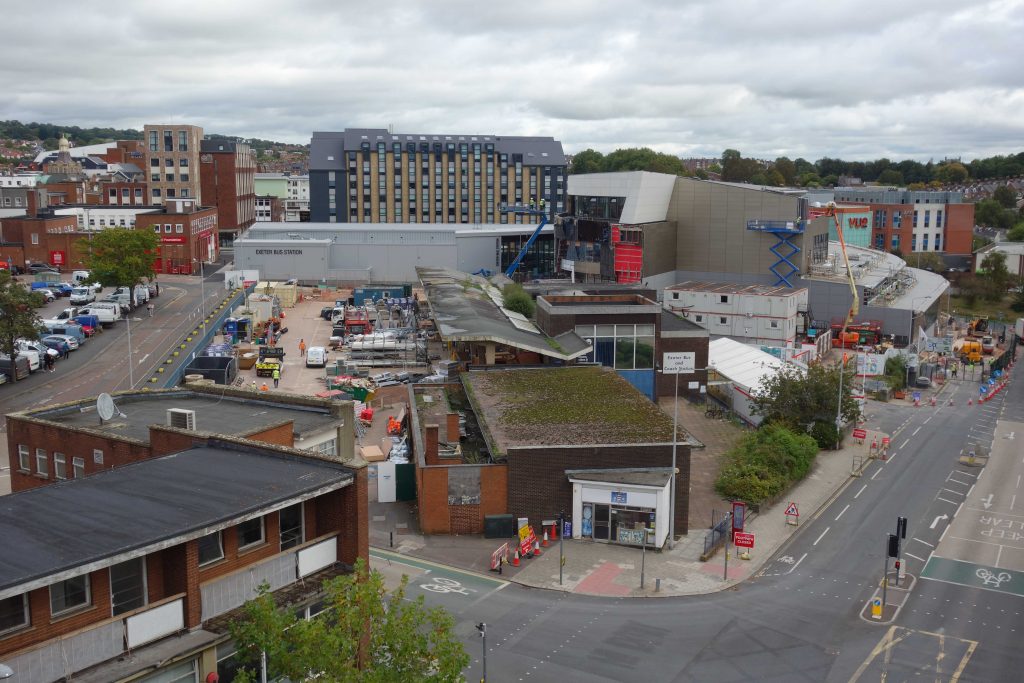
He climbed the steps, two at a time – his Carlsberg belly now prohibits running up stairs – and came out on the open-air level, reached by Wankmobiles using a series of ramps and their owners using the lift.
It struck the scout again, as he surveyed the bus and coach station block, how the new facility has been squeezed in on the far side almost as an embarrassment. He’d be willing to bet that one of the options the city considered was no station at all.
An attendant, who must have seen the scout peering over the parapet all around the top floor, greeted him and pointed to a viewing platform whence Exmouth could be seen.
“Scruffy place, staff rude … ” reported one reviewer
One of the scout’s favourite memories of the bus station caff is the day Alex came in and ordered a hot pasty. While he waited, he went around chatting to the other diners and forcing himself on bemused young women. Eventually, he started goading one of the layabouts, obviously known to him. As the scout peered above his paper, he thought Alex was taking it too far; he kept thumping the fellow’s arm and generally provoking him, despite warnings to desist. As expected, the fellow soon had had enough. Alex’s pasty had by this time been placed on a nearby table. The fellow took the plate, went to the counter, picked up cutlery, gathered some napkins and a bottle of brown sauce and seated himself at another table for all the world as if he was about to tuck in. Alex’s face was a picture; his wrinkled features could have been those of a child about to cry, as he sat at his table wondering if he would pay for his behaviour by going hungry. Until the very end of the performance, no one could have been certain of the outcome. The girls and the manager just ignored it and others continued ordering at the counter, not wanting to get involved.
Of course, it wasn’t like this every week, but there was usually something that made the scout lower his paper.
A very hunched, elderly lady used to sit a the same table near the counter. She seemed by her dress and manner to be out of place, but perhaps she found the same interest and unpretentiousness as the scout and felt more at home in the plain, honest surroundings here than in some corporate stage set, identical across the country, where those decorating a leather settee might fool themselves that they’re the smart, beautiful people in an American sitcom.
One extremely well-built Russian creature on the staff, who looked like she could have crushed walnuts between her thighs, suddenly disappeared around the time of the Ukrainian emergency and it was rumoured that she was a Red Army reservist called home.
One of the few serving ladies that the scout got talking to was not from Eastern Europe, as he had assumed, but Italy. The manager had warned that she was quite feisty. She was in her thirties and the scout was surprised that she was able knowledgeably to discuss Mussolini. She was not asked whether the fascist dictator had made the buses run on time.
Since it was first known that the old bus station was to close, consideration of the ideal place for a new one has occupied idle moments at Christow.
The challenge was always to find somewhere more convenient to Central Station but no further from the centre than the existing bus station. A station over a station – post-war, this was mooted as a site for a car park – or at one of the sites of former sidings at either end fell by the latter measure. Even a bus station on what for a long time was a car park off New North Road would have been just too far from the centre.
The very best solution would be to exclude all but a few buses from the centre and build Exetram, the modern, expanded successor to the original tramway system on the streets of the city.
“This shoddy proposal undermines any effort for the bus station to be seen as a ‘gateway’ to Exeter.”
This is not a political column but it is worth including what one opponent of the plans for the bus station had to say:
“We object strongly to the proposed siting of the bus station as this is far too far away from the City Centre to provide easy access to services and local connections.
“The station is not large enough to accommodate local, Devon-wide and national services or international visitors by coach.”
Objection by the Green Party: Exeter Bus & Coach Station Redevelopment Area, Paris Street.
No matter what failings Exeter’s new station may have, it is better than having no station, as has been the case in Newton Abbot for many years and became the case in Taunton last year.
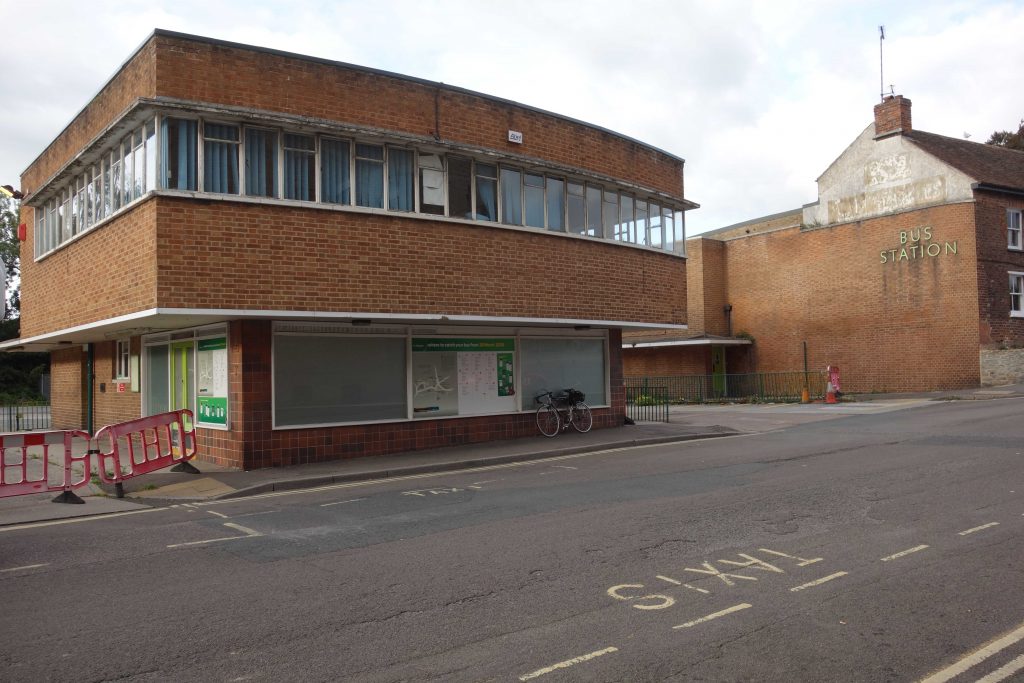
While chatting to a Dartline bus driver at Okehampton in November, it was revealed that in return for making modest purchases in a new cafe on Bamfylde Street, non-Stagecoach men have been told that they may use the toilets during layovers.
A few weeks later the scout went to have a look but quickly decided that it would not become a substitute lunchtime haunt for him.
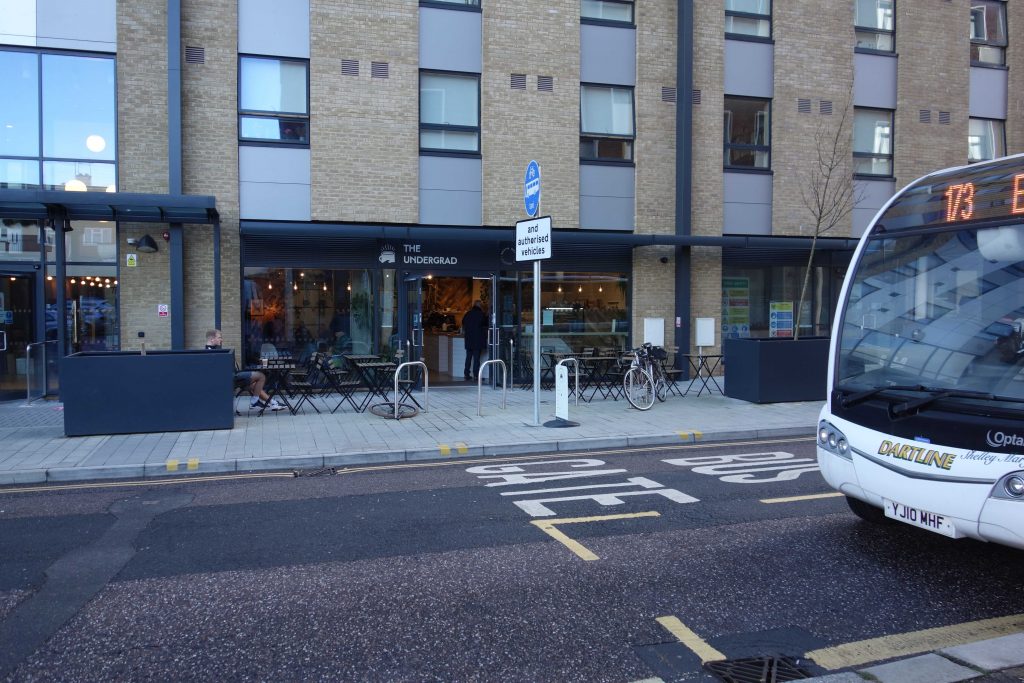
The old caff could have been “The Underdog.”
April, 2023: In July, 2022, Exeter City Council announced that it was begging government to fund the estimated £900,000 cost of demolition.
September, 2023: The scout was still able to prop his bike against the railings, as he had done many times.
Spring, 2024: The end.

